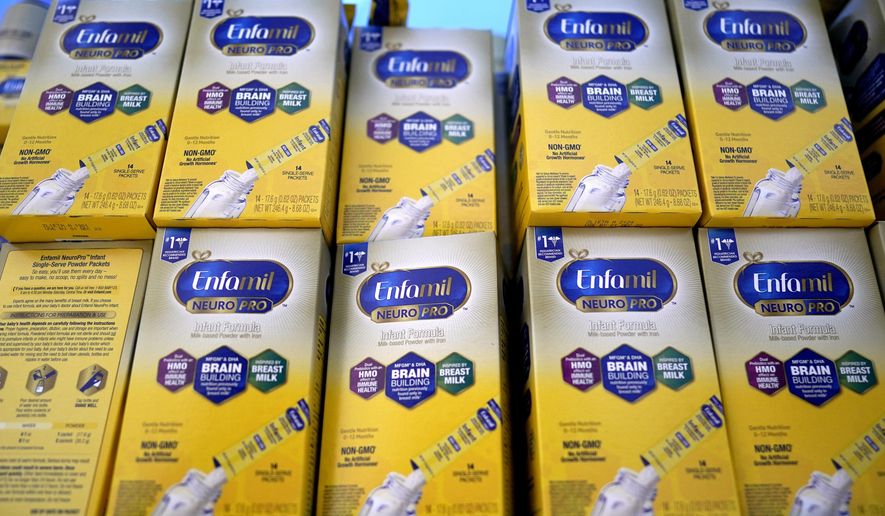WASHINGTON — The head of the Food and Drug Administration faces congressional lawmakers for the first time Thursday over the shortage of baby formula that has rattled American parents and become a growing political liability for President Joe Biden.
FDA Commissioner Robert Califf’s appearance before a House subcommittee comes just hours after Biden announced a stepped-up response to the issue: invoking the Defense Production Act to speed domestic manufacturing and authorizing flights to import formula from overseas.
Califf is the first administration official to testify before Congress on the issue, which has left some parents hunting for formula and become a talking point for Republicans. Behind the shortage are several distinct issues, including supply disruptions caused by the coronavirus pandemic and the recent shutdown of the largest U.S. formula factory.
Earlier this week, the FDA announced several steps to address the problem, including a preliminary agreement with formula maker Abbott Nutrition to reopen its plant, which has been shuttered since February due to contamination. The agency is also streamlining the process for international manufacturers to import more formula.
Members of a House Appropriations subcommittee have signaled that they will ask Califf why the FDA didn’t act sooner to help head off the supply challenges. Lawmakers have also suggested the FDA missed opportunities to catch the problems at Abbott’s plant as early as last fall.
Rep. Rosa DeLauro, D-Conn., recently released a whistleblower complaint alleging numerous safety violations at Abbott’s plant, including employees falsifying records and failing to properly test formula before releasing it. She said the former Abbott employee alerted the FDA to the situation in October but was not interviewed by agency staff until late December.
And there are other questions about the FDA’s timeline for dealing with Abbott. The company shut its Michigan plant in February after FDA inspectors began investigating four bacterial infections in infants who had consumed formula from the plant. The first of those cases was reported to the FDA in September though agency staff didn’t begin inspecting the facility until late January. Califf said earlier this week the agency’s investigation is ongoing and it hasn’t yet reached a conclusion on whether bacteria from the plant caused the infant infections.
Abbott says there is no direct evidence linking its products to the illnesses.
The baby formula shortage is the first major crisis for Califf since returning to the FDA in February. He briefly led the agency under President Barack Obama and was tapped for the job again based on his past experience leading the sprawling agency, which regulates food, drugs, medical technology and tobacco.
While the baby formula shortage is certain to take center stage, Thursday’s hearing was originally scheduled to review the FDA’s budget request for next year. Califf is expected to ask lawmakers for $76 million in new funding for food safety and nutrition, according to prepared remarks. The request comes amid longstanding concerns that the FDA’s food program - which oversees most U.S. foods except meat, poultry and eggs - has been underfunded compared with the agency’s drug and medical divisions.
On Wednesday evening, House Democrats passed a $28 million spending bill that would boost FDA funding to inspect domestic and international formula producers. It’s fate in the Senate is uncertain.




Please read our comment policy before commenting.